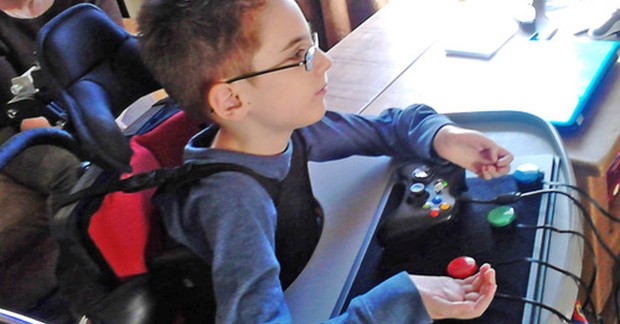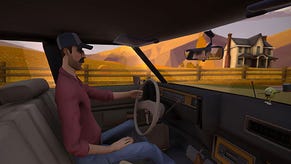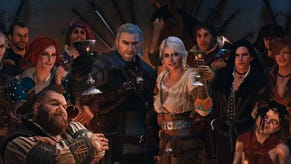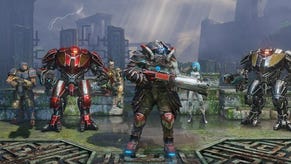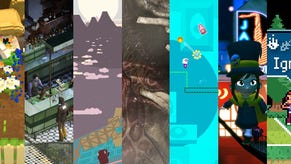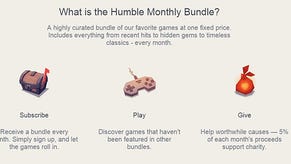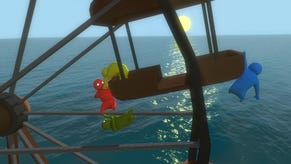Interview: Humble Bundles Raise $50 Million For Charity
Immodest Success
Humble Bundles have helped raise $50 million for charity since the service's launch in 2010. That's a staggering amount of money, raised by people who love games, through a system that let's people pay what they want. The money has gone to over 25 different charities, to help fund healthcare, bring food and water to those in need, and to help those with disabilities play games - among many, many others.
To mark the occasion, we asked Duncan Geere to have a chat with co-founder John Graham about the charity efforts, what he thinks of Steam curators, and why the future of digital distribution is colosseum deathmatches.
RPS: $50 million is a lot of money. Last time we spoke to you it was $8.5 million.
Yeah. It's hard to comprehend. I'm reminded of what our CEO Jeffrey Rosen said at one of our team meetings recently - that after the very first Humble Indie Bundle we were just completely blown away by the magnitude of what that little experiment had done in eleven days. $1.27 million had come in, and the cheques we were able to write people - both on the developer side and the charity side - were unreal. These were hundreds of thousands of dollars.
We've now blown out that initial experiment by two orders of magnitude. So that's a really big deal.
RPS: What charities does the cash go to?
Well there's a whole bunch. It depends on the promotion. Some of the frequent charities are the Electronic Frontier Foundation, the Child's Play charity, the American Red Cross, Charity: Water, we've helped the World Land Trust on numerous occasions. We've helped all sorts of organisations, which has ended up being a diverse set of awesome, real-world good for everyone.
RPS: The $50 million figure - that's all gone to the charities, correct? That doesn't include developer payouts or your Humble Tip figure, right?
Yeah - that's how much we've raised from customers allocated to charity. It's just the charity component.
RPS: So with the $50 million - everything you've raised so far - that obviously comes from a lot of different bundles, and some will have been more successful than others. What have the most popular bundles been on the site? What's produced the biggest share of that cash? I'm assuming it's the Rock, Paper, Shotgun bundle.
Hah! Well that was a good one. You're right - we've done all sorts of different shapes and sizes of bundle and I'm proud of every single one of them. In terms of raw gross, on the general metrics, the Humble Origin Bundle is the biggest single promotion we've ever done. It brought in, I think, $10.5 million in that two-week interval. That was absolutely tremendous. There were five charities supported in that event and we were able to write them each cheques for over a million bucks. That was huge.
RPS: I know you've said in the past that Firefox users tend to be more generous than other browsers. Have you got any stats on platforms?
Well, historically - as we saw in the very first Humble Indie Bundle - the Linux users tend to be more generous than everyone else. Mac guys are in the middle. And the Windows folks tend to be a little on the cheaper side. I don't know if we've done any other clever breakdowns that we've announced. There was a time after the first Humble Indie Bundle when we found that Gmail users were twice as generous as Hotmail users. I don't know if that's held true throughout the lifetime of the company but I bet we could tease out other interesting demographics like that.
RPS: You added Bitcoin recently as a payment option - are those guys any more generous?
Some people are, I think, but some people are trying to behave optimally. I think the minimum payment you can give with a Bitcoin... I forgot if it has to be the real-world dollar, or penny equivalent. Or if you can do one of those 1 / 28-style teeny tiny transactions. But I don't think we've noticed any particular generosity from the Bitcoin guys. I think they're just like everybody else for the most part.
RPS: You mentioned Origin - obviously you used to be the Humble Indie Bundle and now you're just the Humble Bundle, and over time that's been a little bit controversial. How do you answer people who complain that the big publishers are jumping on the bundle bandwagon?
The truth is that we don't want to do mainstream triple-A bundles to the exclusion of indie bundles. That's just an additional type of product we can offer. To the extent that we're offering successful products, we've been able to grow our humble company and we've been able to do things like hire a full-time Linux porter, and engage more and more Linux porters into a team, and we actually exceeded 100 games ported to Linux very recently.
That may not have been possible without growing the company, so it may feel awkward to some that we're doing things beyond the original template of the original Humble Indie Bundle, but really it's all just positive growth in a helpful direction. We want to use the growth we've got to help everybody - it grows the community, and we think that empowers us to make even more successful promotions in the future, by growing our web presence and growing our resources. So that's my answer to them - it's not a zero-sum game. It's just that each of these should help everyone.
RPS: Since you started doing bundles, loads of other videogame bundles have popped up all over the place. Do you see these as having a diluting effect on your own bundles? Does it bother you? I suppose bundled products existed before you guys came along...
I guess they say that imitation is the highest form of flattery. But again I don't think it's a zero-sum game. I think that where there's a developer that wants to get noticed and get attention drawn to them, and there's a platform and a promotion mechanism for them to do that that they're interested in, I think that's a great thing.
It's true that whoever you are - any promoter and platform out there - only has so much real-estate to go around at any given time. They can only feature so many things in the prime slot of their website, or downloadable client or whatever. There are developers that can't make the cut in one place but want to be featured somewhere, and there should be a wealth of competing alternatives for them to do that. I think that the competition is only healthy, and it keeps us all honest for trying to offer more and more value to win the developer.
RPS: You've also branched out fairly recently into things like music, books, comics and so on. How successful have those been compared to the games? How popular are they?
They're doing great! The books tab was the major experiment we launched this year. We had seen with our initial book bundles that they were breaking a million dollars sometimes in two-week promotions, rivalling the size of the original Humble Indie Bundle.
We decided for a non-gaming vertical that we would get serious about books. That made the most sense. So we've been having several continuing awesome book promotions throughout the year - sometimes sci-fi and fantasy novels, sometimes comics and graphic novels. We've gotten to work with IPs like Transformers, My Little Pony, Star Trek and Star Wars. So I think that it's really taken off and started to get its own legs as a separate part of our business.
We have found historically that we've branded ourselves heavily as a gaming company, so it's not necessarily true that everybody that bought the Origin bundle wants to buy graphic novels from us. But we have definitely found a segment of our audience that loves the book business and wants to keep engaging with the promotions we put on.
RPS: Just to check I understood that right - you're saying that your first book bundle was almost as big as your first games bundle?
That's correct. Books bundle one was about the size of the first Humble Indie Bundle.
RPS: Impressive. And the ones since have kept that up?
The books come in different shapes and sizes, just like our games promotions. We've had a lot of big promotions. They're not all that size, but a lot of them are near that size.
RPS: So I think you can probably say at this point that the bundle model has been pretty successful for you guys. Whipping out a crystal ball, what do you see coming next in the world of digital distribution?
There's something to be said for customer convenience, and we were really excited about the Humble Mozilla Bundle because it was the first time ever that games were playable on humblebundle.com itself. I think the open question I have is: 'why is it so much easier to watch a video online than it is to play a game?' Why should it be any different? It seems like the technology is there. The browser is evolving. The hardware acceleration for WebGL is opening up. Given that the browser is the thing we know and love and trust for all of our online experience, why can't we bring the game directly into that browser experience somehow?
RPS: Hmm. Interesting. Obviously the curation aspect of what you do is very important too. How successful do you think that the new approach Steam is taking to discovery is going to be?
I think it's a really smart idea. I think there's been this wealth of celebrity promoters that have existed silently inside the Steam ecosystem, and they've had to be more or less an anonymous regular user. Now Steam is finally starting to acknowledge these folks that have communities that can drive eyeballs and energy onto gaming, and start to enable them to focus their funnel onto Steam. I think that's a very clever idea, and it should serve developers well.
I think the broadcasting functionality is a good idea too, because again it's a way for an internet celebrity to gain attention onto a game by playing the game and turning on this broadcasting mode. We've seen it already with Twitch of course, but Steam is very smart to look towards more and more features like that.
RPS: That draws a line nicely back to what you were saying before about making it as easy to play a game as it is to watch a movie in the browser. With Twitch, people are watching people play games, so it's an even shorter jump.
Yep! I think that's the first step. When you watch things like Twitch Plays Pokemon, there's been this activity layer that's been neglected for just the passive watching of someone play a game. That interactivity is going to be stepped up in clever ways - I guess it's just Hunger Games at some point. People watching get to influence the outcome - reality TV has been doing it since forever. Why shouldn't someone be able to win a bunch of eyeballs and involve the crowd - like the crowd in the Colosseum, watching the gladiators fight. They can decide if they give a thumbs-up or a thumbs-down, and the fates of the gamers are affected by that. I think that sort of stuff has a lot of potential.
We certainly have an eye towards it. I don't want to promise too much too fast on the Humble Bundle side, but I think step one, or step 0.5 for us, is just trying to open the door to more types of promotions. When we can put on a promotion with great curators and knowledgeable people in the gaming space like Rock, Paper, Shotgun, we really enjoy that. If we'd just stuck to the original Humble Indie model, we'd have been much less versatile than we are now. We acknowledge that there are so many cool pockets of the internet that we want to tap into, and reach out to and include in the promotions we do. That's certainly something worth thinking about as well.
RPS: So the future of digital distribution is colosseum deathmatches?
[laughs] Yeah! That sounds right - if that's the soundbite, I like that. Maybe that should be the title of the article.
RPS: That's basically all the questions I have. Anything else you want to add?
Not really - just to give our thanks again to everyone involved in the Humble Bundle community. From the game developers that have made the beautiful works of art that participate in our promotions, the fans out there in the community who've engaged with us and participated and told their friends, and folks in the press who've helped us spread the word.
We never expected to be here, having travelled this far, with this crazy experiment. It was either going to succeed in a big way, or it was going to fall flat on its face. Thanks to everyone's love and support we've come a very long way and we're very thankful, and we've done a lot of real-world good. So I just want to say thanks to everyone.
RPS: That sounds like an Oscars acceptance speech.
Hah. Yeah - but it's true!
RPS: Thanks very much for your time.



